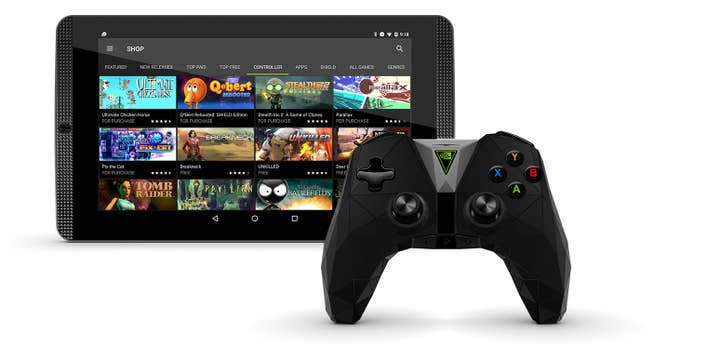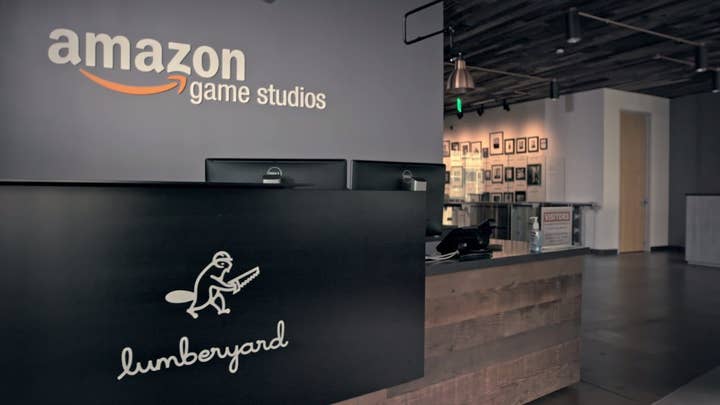Amazon's struggle is a reminder that content is still king | Opinion
Every tech giant wants a slice of the games business, but the difficulty of creating great games and valuable IP hasn't changed
Everybody wants a piece of the action. That's the dominant sentiment around the videogame market right now -- a sense that the world's biggest companies have turned their attention on this sector, and they're all quite determined to make sure that they play a key role in its future.
Of the "FAANG" tech giants whose rapid growth (and occasional instability) has fuelled much of the stock market's movements in recent years -- that's Facebook, Apple, Amazon, Netflix and Google to the uninitiated -- only Netflix doesn't have a confirmed interest in getting a foot in gaming's door. Even at that, nobody would really be shocked if Netflix boss Reed Hastings were to announce tomorrow that the company is going to make a bigger push behind interactive titles or creating games that link to its other IPs as a cross-media effort.
Add in Microsoft (currently the world's largest company if measured by market capitalisation) and China's Tencent, both of which have a very significant interest in the gaming sector, and you've essentially got a who's who of the world's richest and fastest-growing companies -- all of them with their sights set on gaming. For all that Sony and Nintendo have been knocking it out of the park in recent years, it's easy to feel a little uneasy about the company they suddenly find themselves in. Even the likes of Sony starts to look like a bit of a plucky underdog when it's got Google and Amazon ramping up to compete against it.
"Even the likes of Sony starts to look like a bit of a plucky underdog when it's got Google and Amazon ramping up to compete"
Yet success in games isn't all about money -- though having plenty of it to throw at the problem certainly doesn't hurt. Even given the biggest sacks of cash in the world, though, making a success out of the videogame market is tough. This week's news from Amazon is a significant case in point; a few years after announcing major ambitions to supplement its Twitch acquisition by creating a game engine, internal development studios and a publishing operation, very little of the company's vision has come to pass. We've seen adoption of the Lumberyard engine pretty much flatline, the pivot from mobile development to AAA titles has so far offered up the cancellation of one game after a public alpha and few details of the remaining in-development titles, and now a "reorganisation" of its teams has resulted in dozens of layoffs.
Without for a moment wishing to downplay the disruption this will cause to the lives of the affected employees, the overall picture is fairly standard teething-trouble type stuff for a company trying to get into games. Doing videogames is hard, even for a company the size of Amazon, or indeed a company with such a great track record of execution and success as Amazon.
The really striking thing is that Amazon is already hitting these speed bumps and it hasn't even managed to get to the really hard part yet. Simply getting high-quality games ready for release is a tough task requiring a lot of expertise and experience, but the real challenge is getting players to actually engage with those games in a way that carries out the successful, alchemical trickery that changes them from being "a game" into being "an IP with inherent value" -- something you can actually build a long-term business on.
This isn't to say that Amazon's interest in games -- and Facebook's interest, and Apple's, and Google's -- isn't going to be a big factor in the industry in the future. However, there's a distinction between platform and content that's really important to think about in terms of their involvement and the degree of threat they represent to the established players.
"Amazon is already hitting these speed bumps and it hasn't even managed to get to the really hard part yet"
Platform has unquestionably become somewhat commoditised in recent years, so long as you're a company with a few hundred billion in market cap to your name. It's not much of an exaggeration to say that Jeff Bezos could wake up tomorrow and decide that Amazon was going to launch a games console and/or a streaming service, and just make it happen. Streaming is still something on the horizon rather than an immediate reality for most use cases, but even game hardware is effectively commoditised at this point. The days of strange custom chipsets and wildly clever shortcuts to allow consoles to punch above their weight are long gone, replaced for the most part with (admittedly very carefully selected and configured) off the shelf components in nicely designed-boxes.
On the surface, that makes the likes of Sony and Nintendo -- and Microsoft, though that's a giant whose scale rivals any of the FAANGs even on a bad day -- look pretty vulnerable. If Amazon or Google could launch hardware just as capable as theirs with ease, and will actually have a significant advantage in launching streaming services down the line, then there's a perspective which says that Sony and Nintendo could find themselves facing down tough competition from firms with far deeper pockets at any time.

Yet this ignores the absolutely vital role of software, and more importantly of IP. The moat around Sony and Nintendo's businesses -- and Microsoft's Xbox business, too -- isn't really anything to do with their platforms, though the brand name and consumer loyalty does help. Rather, it's to do with their software, and no matter how much money the FAANGs throw at software it's still going to be a very uphill struggle for them to match what the current platform holders have achieved in terms of their IP libraries.
"Software and IP is where the real value lies, and it's much harder to build than a platform; just ask Netflix"
That software "moat" is why it doesn't matter that consoles are largely made up of off-the-shelf components. People don't buy them for the sum of their parts, but for the implicit promise of the name on the box. Look at how few people bought the Nvidia Shield when it was called Nvidia Shield, versus how many bought it when Nintendo effectively popped an upgraded version of it into a nice new box and called it "Switch". That differential isn't about Nintendo's hardware design and the updated Tegra X1 chip, it's about the promise of the "Nintendo" name and the software moat which exists around that business. Could a bigger, faster-growing company create a device almost exactly like the Switch -- possibly even better, with a faster processor and crisper screen? Sure. Would it sell as well as the Switch? Not a chance.
That's the competitive magic of the names PlayStation, Xbox and Switch; that systems bearing those names are backed up by the IPs, franchises and game development nous of Sony, Microsoft and Nintendo. Of the three, Nintendo has by far the deepest pockets in terms of IP, but Sony has been no slouch. A great deal of the PS4 era has been devoted to painstakingly building up the PlayStation library of IP and franchises in order to ensure that the company's competitive advantage lies in software rather than hardware.
Microsoft for its part dropped the ball at the end of the Xbox 360 era. The failure to maintain an effective first- and second-party software pipeline was arguably a bigger and more damaging mistake for Xbox One in the long run than its much more commonly critiqued early focus on Kinect and TV-related features. But it has since recognised its error and gone a very long way towards fixing it. The literal years and enormous amounts of money Microsoft has spent on building back up its game software operation -- a process which despite its enormous promise will not actually bear fruit for another year or two -- is a fairly sobering reminder of the hill any other would-be competitors need to climb in order to storm the fortresses Nintendo and Sony occupy right now.
None of this is to say that the FAANGs don't matter -- they clearly do. Their entry signals the commoditisation of platform, which is going to have a pretty big impact on how the industry runs its business in the future. However, if they're actually going to rattle the cages of Sony, Nintendo and Microsoft, they're going to have to get into the content game, and that's a much tougher ask than saying "we're a cloud company, we could do game streaming." Software and IP is where the real value lies, and it's much harder to build than a platform; just ask Netflix, or better yet, look how much Netflix is spending annually in an attempt to shift from being a platform for other people's content to being a creator of content.
Without IP libraries backing them up, the big tech giants might build great platforms that co-exist in parallel with the likes of Sony and Nintendo -- but nothing they do will ever really pose a threat to the core gaming business of these established firms.

